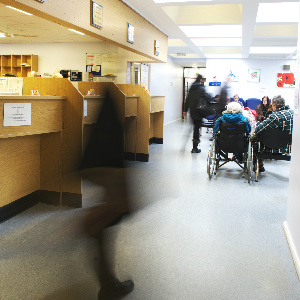One in six ‘undocumented’ migrants in the UK avoids seeing a GP despite being eligible to do so, because of fears over their immigration status, a report has found.
The report by think-tank Demos quoted statistics from a Doctors of the World survey of 1,000 migrants, which found that 90% had not registered with a GP, with 20% of those saying they were deterred from seeking medical help because they feared consequences relating to their immigration status.
Demos called on the Government to set up GP and adviser-staffed triage centres, where migrants could see a GP but also be given advice on what secondary care treatments they are eligible for and what charges this may incur.
Leigh Daynes, executive director of Doctors of the World UK, said: ‘Volunteer doctors at our London clinic see a steady stream of vulnerable migrants who – despite being entitled to it – are denied access to NHS care or are too afraid to try. This includes people with serious illnesses like cancer, parents with small children and heavily pregnant women.
‘The patients we see are not health tourists, they live here – on average for more than four years before seeking a doctor’s help. Protecting the NHS from alleged misuse must not compromise a doctor’s duty to treat the patient in front of them, regardless of income or status.’
Report author Max Wind-Cowies, associate at Demos, said the potential cost to the NHS for delayed treatment ‘speaks for itself’, and added that the current outbreak of ebola had put the issue ‘in extremely sharp focus’.
He said: ‘The potential costs to the system of delayed treatment and risks to public health of missed opportunities for diagnosis speak for themselves – we do not want to inadvertently push up the price of healthcare in a misjudged effort to tackle perceptions of abuse and misuse.’
‘The current ebola outbreak puts this issue in extremely sharp focus. It would be morally indefensible to leave vulnerable people – from children and young people to unwell but undocumented migrants – at risk of going untreated when we should be doing everything possible to protect public health.’
It comes as the Government has issued guidance on ebola to GPs and their receptionists in the past few weeks.
Pulse October survey
Take our July 2025 survey to potentially win £1.000 worth of tokens













